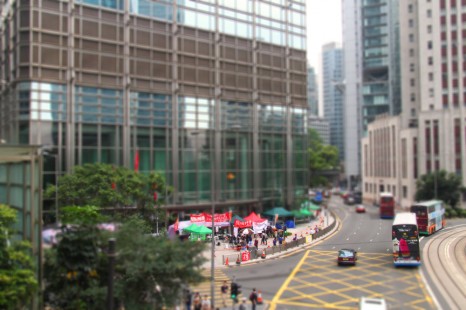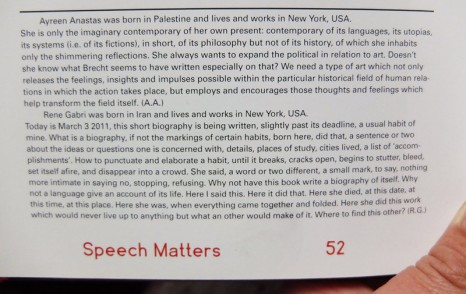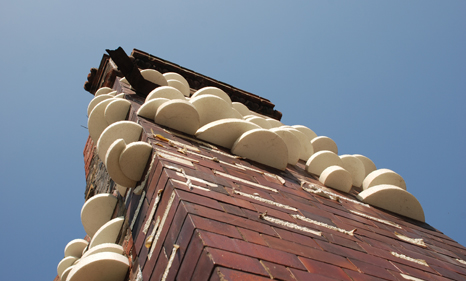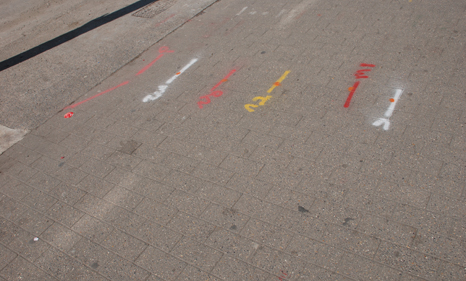by marguerite duras
notes from the yangtze (holdings), HIT, strike, limited
It all started with an image, though one that really came into a so to speak light before it even existed. One sees, firstly. Punctum as a form or attention, filter or framing device——an interruption in the act of seeing which triggers a refraction where association is the flipping upside-down of the mirror as much as a natural stream of thought. Oh. Constantly grasping at words. Try to describe flows, try to pick up words that describe people: 散文诗人, the great essayist, experimental folk maker. One is never enough, of course——artist, writer, activist——but if i could describe to you a process instead then perhaps i wouldn’t have gone through it all in quite the same way anyway. Words destroy me, time passes, and in the meanwhile we play a few games.
It all started with a seasick steadicam. It was the bane of those first few weeks of working, becoming one of those challenges that one cannot give up on simply because you’ve already wasted too much time trying and cannot bear to let go in vain. And those many hours spent walking back and forth the third floor flat tinkering with an orange handsaw arm, PET bottle caps and various metal washers came out of a whim, really, based upon a beginner’s rereading of The Politics of Disappearance and moving around in Hong Kong. Movement, restlessness, sitting at a desk overlooking noisy Shanghai Street looking for the right troubleshooting video to make the damned steadicam work as it should. Sitting as restless as distraction, the wrong videos lead to other flows, like centripetally-spinning eggs scrambled inside the shell and shanzhai effecting tilt-shift optics with video and image-editing software.
And we continue to work within that distraction, as if the Cantonese version of looking (眱) already directed our eyes askance, the Scheimpflug principle was made physical as if we were moving throughout the city while laying down. Or seeing through a viewfinder, especially when mounted on a seasick steadicam held at waist-height. Tilt-shift is a subtle change in perspective, and your weak limb makes everything feel more distant, passive but with uncertain intention like sleeping next to someone with their back turned to you. I wonder if feeling distance from these images makes one more of a subject or less of one.
He says, “I am thinking. What if the body were not important?”
We keep walking along an overpass, and she comes to match our pace on my right, listening. She interrupts him at one point, and when she closes her statement with, “Maybe it’s an over-interpretation“, her body moves away from us while keeping the tempo.
Later while they are opening up the furled black banner in her arms, I say to him, “In principle, we should be free. But with the body there is possession. And with possession there is the basis for all socio-political conflict.” We stop at an intersection, in the middle of the street. Some people sit down.
It could have all started from there. He had warned me about getting arrested, but for all the supposed escalation it starts raining and traffic is restored. Everyone shoots images of everyone else. The three-man police film crew make a tilt-shift view, their camera perched on a gaffer pole above the crowd, one with his hands following gently on the shoulders of the gaffer. Everyone is in close proximity; the third is close behind.
She writes, for instance, “the Polis, properly speaking, is not the city-state in its physical location; it is the organization of the people as it arises out of acting and speaking together, and its true space lies between people living together for this purpose, no matter where they happen to be.†The “true†space then lies “between the people†which means that as much as any action takes place somewhere located, it also establishes a space which belongs properly to alliance itself.
—Judith Butler, “Bodies in Alliance and the Politics of the Street“
When you look up tilt-shift photography on Wikipedia, you will find an image of Hong Kong viewed from Victoria Peak, as if that particular perspective and reference were made for that kind of displacement; distortions require further tweaking before we realise that the spaces of camaraderie encompass kilometers and the ones around them hone in the millimeters of a lens during public conflict. Focus shifts while waiting in civic procession: a boring walk, intermittent conversation, a hand-painted sign. She asks how we can change the circumstances. It is uncertain whether or not the question is real, let alone try to imagine jouissance or our own semblance. Keep on walking, they say, there’s nothing to see here.
Posted by 丫 | reply »preliminary notes on ice house street
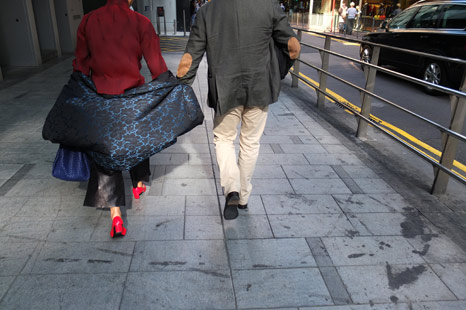
#今天å¦äº†ä»€ä¹ˆ# Realising today that we’re only speaking in colours, collaborations “no bad, only un-good”——meaning we work hard to reserve judgement, critique, oh, inauthentic observer, otherwise catty once becoming “a life-long association that would change the world”.
At the end of August, 1844, Engels passed through Paris, en route to his employment in Manchester, England, from visiting his family in Barmen (Germany). During 10 days in the French capital, he met Marx (for the second time).
Collaboration means meeting on occasion, sometimes intensively, we laugh at the easy jetset, asking lots of questions in diversion, desiring of the “tranquility of knowledge”. But that wasn’t it. This is non-knowledge, collaboration in colour, yes, Anastas/Gabri, Bester/Kishop or WoofShop, comparative studies as variations on a what, what you want, define and argue, get lost searching for the sea, in Elements, continue softer, what you want.
Would the ‘urban entropic conclusion’ require a certain withdrawal from the social, identity radii, we’re not obligated, her islands, come out only for exposure and/or discomfort. Rearrange the flat, morning study sessions, a cheap coffee maker and a broken electric stove. But it wasn’t really broken. Engage out of what you know, engage to counter what you know; they look similar, maybe, but stylistically…approach, a rationing, an investigation. What is continuity, in the end (har har har), but the careful arrangement of objects and the nice surprise that he even noticed?
Posted by 丫 | more »biography Posted by 丫 | reply »
a monument to stubbornness
or what else is -this- ? all of -this- ? a perverse kind of loyalty. a “then-ness” carried on into now… a gift. not gifted. gifted to you all here, in vein of mister aarsman (photography against actual gifting):
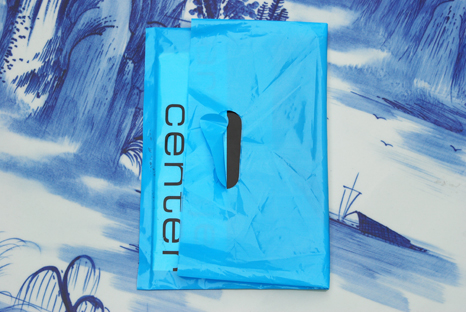
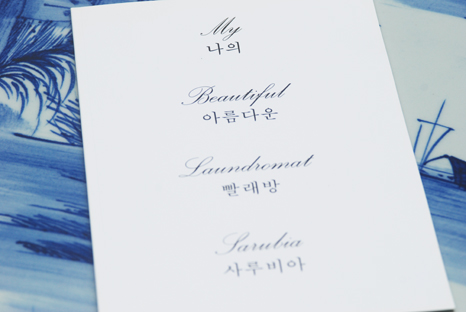
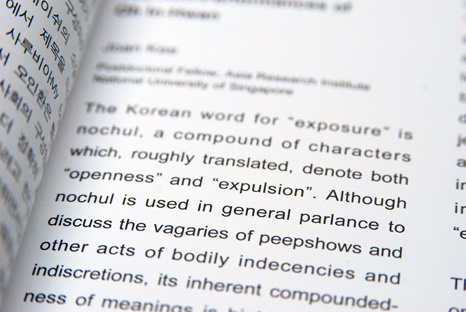
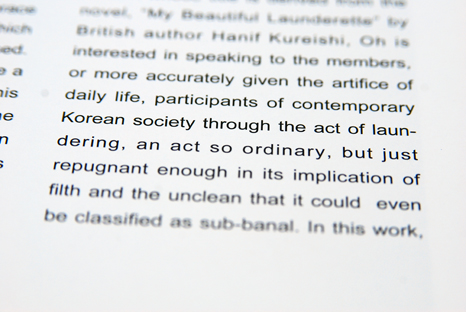
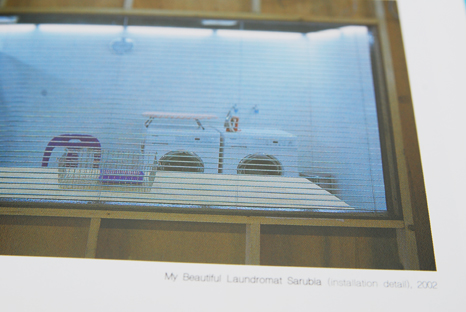
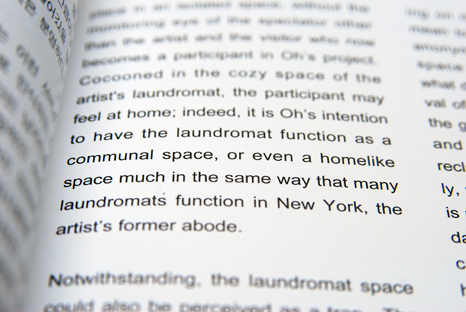
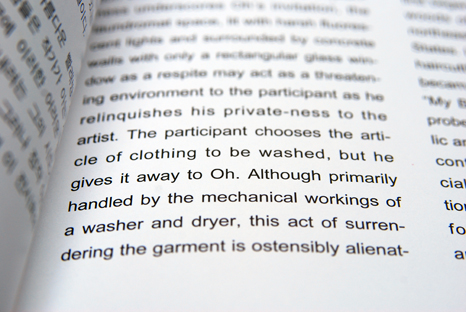
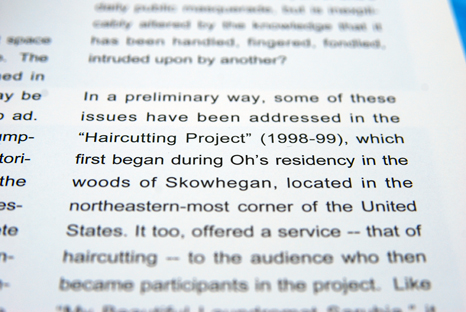
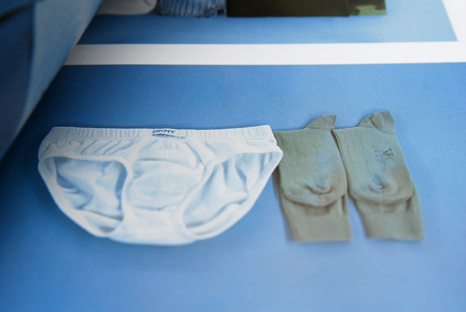
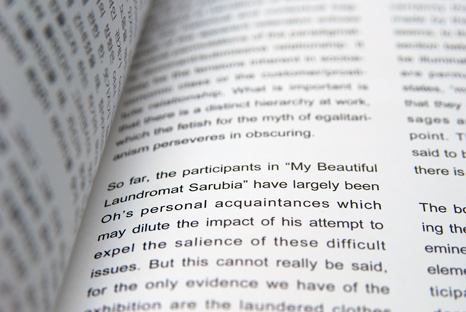
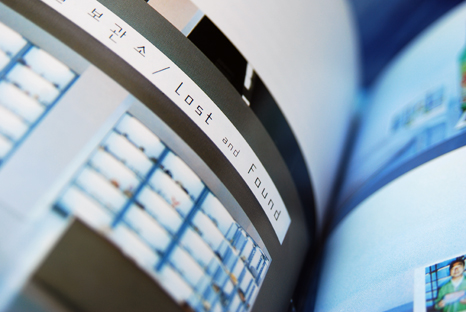
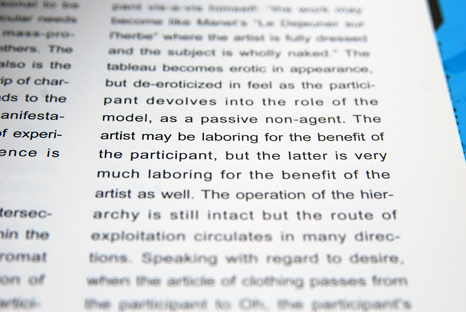
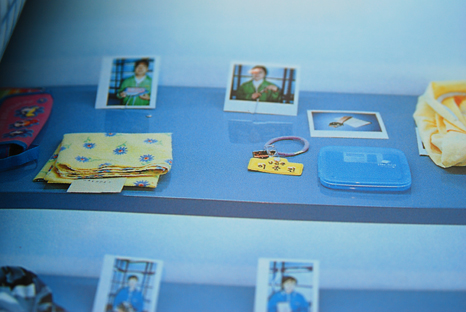
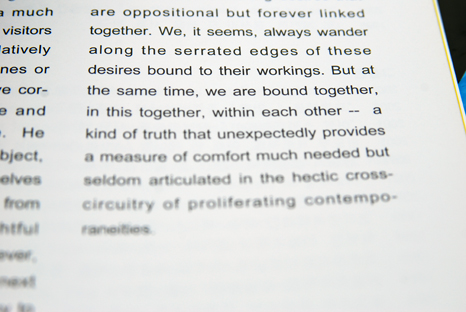
THE WORK (for 絵美 and a friend of hers, and for everyone amidst iwishicoulddescribeittoyoubetter)
How could this be institutionalised? In describing, putting the words to entities, in finding vocabularies and knowing where to look, we are trapped already. How couldn’t we be? Should I write such that you never understand; should I make work that never needs to be seen; should anything other than question marks arise?
Is this a work? Would we rather toss it all off to a little game, scoff at those who take themselves too seriously, never be so ridiculous as to consider the nests of “art” and “life”? Are the words one is using as important as the to whom one is speaking? “What is the work of man?” And why not say it, invest oneself with intention, make the attempt? Flail? This is not an institution, as could it ever be, with time, with the fulfillment of certain criteria of Work. We are tied to a production as always, since before we were aware of it, since we were animals. And the guillotined bumblebee, as Agamben asks, is he as busy as ever, do we continue amidst work, does time fly when…?
Should anything other than question marks arise?
What-is-the-work?
Should the work be defined by a trade, a certain amount of craftsmanship, the ergon of man, a list of projects and venues to which one must be flown? Does work define our activities or does activity define work? Why should vita contemplativa be placed above vita activa in a society with no God? Is this the captivation of the bumblebee, are we productive enough, should we make particular dialogues in work-group fashion? Because if I play, or if i dangerously mix words like “art” and “life”, like you know, when
Every afternoon he goes there to see a big painting for two hours, and he says, ‘I’m doing the work to see the work’. That’s ok, I think it’s no problem. He did another work where he pays for three months of traditional Chinese music lessons, on the erhu. – 马永峰 MA Yongfeng, Forget Art
Can a situation be Work? Our particular arrangement to one another, did you try that out, were you networking? Is the amount of control in any given situation a Work? Is control a result of the fact that there is no one around to help us, or that we are ‘mere’ fascists? Is the controlled situation a place of God or science or politics? Why do you question, why go beyond captivation? What did you question, what did you create, where did you control the situation and where was spontaneity a lie? 艾未未 AI Weiwei calls it the “vocabulary” that “can also be the total meaning of the concept”; Pierre Huyghe says a one:to:one ratio of idea:to:form. These are control experiments, perhaps, but not without the certain seepages that blur the distances between the Work and our ethics, our politics——our everyday. We take ourselves too seriously. In the fullness of the situation, yes. And yes, he is right, we could not presume it to be so before its occurrence, where there is thus the very small moment when the lack of control has perchance to touch upon the work’s going beyond itself. An eventfullness…
Have we said too much already? Really, should anything other than question marks arise?
Are these thinly veiled treatises, and what have you really got to say?
Stopping oneself… (slow, slow loading, please be patient)
Posted by 丫 | more »hide and seek, a life
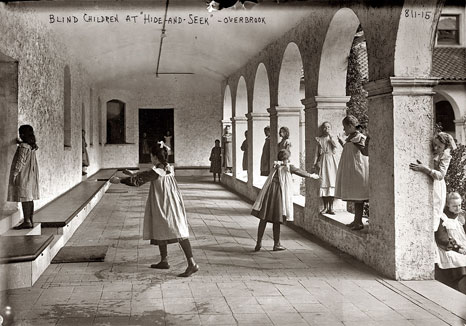
blind children playing hide and seek, 1912 (via julian kücklich)
“i remember that the verb to find [trouver] does not first of all mean ‘to find,’ in the sense of a practical or scientific result. to find is to turn, to take a turn about, to go around. to come up with a song is to turn a melodic movement, to make it turn. no idea here of a goal, still less of a stopping. to find is almost exactly the same word as to ‘seek’ [chercher], which means to ‘take a turn around.'” (maurice blanchot, the infinite conversation)
Posted by f | reply »we start talking to no one in particular, a no one without properties
“what a lovely name for a street.” feeling. still. yes. no. nostalgia. for something that will never be. alas. so we walk. we walk. with the need for dreams to commit suicide. sometimes. “c’est la chose la plus horrible à faire“. or is it. again and again. and an afternoon in the sun. tracing and retracing and walking anew. circles perhaps. fly. yes. fly again. it’s good to be in a place without lists and rows. construct to reconstruct or an economics as a doing. in the city. it would be nice to see what we cannot see. “precisely to fill the emptiness with emptiness, and thus to share it.” you do with it what you will. never a prescription for life. and yes we are left ‘inconcluded’. always. upon arriving home a message overheard from the new york subway through to london: “everyone knows. that love. belongs in the microwave. for two minutes.” 哈! thank you maria.
Posted by a | reply »